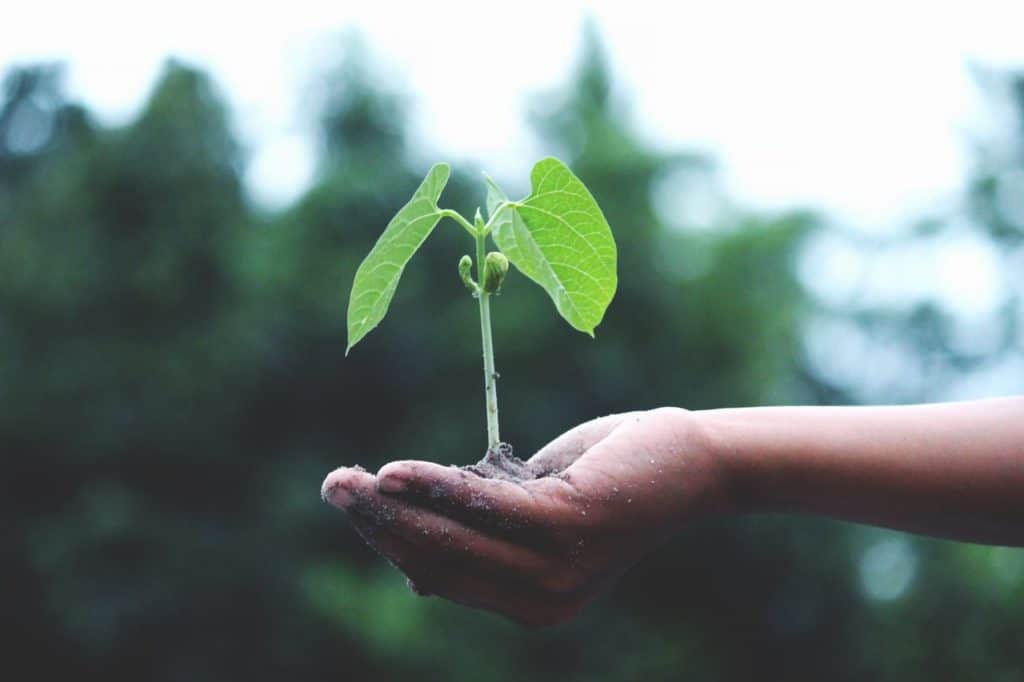Recently, the entire world has started to be more concerned about our planet and how pollution and climate change are affecting our environment. We hear about bold sustainable initiatives and changes by the day all around the world. From governments to both small and large companies worldwide, everybody pledges to make green changes that will reduce their impact on our Mother Earth.
And, the Middle East is no stranger to such initiatives. From governments to business leaders and startups, everybody in the Middle East seems to be joining forces and adopting more sustainable solutions by the day.
Wrongly, the Middle East region is often associated only with natural, political and social issues and challenges. However, little is known that despite all these impediments, the entire region has made major efforts to shift towards more sustainable practices, especially in design and construction.
Over the last year, the region is facing many challenges because desertification claims more arable land. Thus, the countries in the Middle East are facing an increasing risk of dealing with water shortages. In fact, almost half of the world’s countries that are dealing with water shortages are located in the Middle East and North Africa.
But, considering its predominant desertic climate, can the Middle East ever be green?
Active civic participation of the youth
Just like in most parts of the world, the younger generations in the Middle East seem to be the environmentally conscious pioneers of sustainable development. The region is among the youngest areas in the world thanks to its population under the age of 25 representing more than half of its entire population.
And, according to recent research conducted by the Sustainability Advisory Group in the MENA region, the Arab youth hold a great potential to make a considerable contribution to the sustainable development of the region. The research points out that the major environmental concerns of Arab youth include water conservation, energy-saving, and waste management solutions. Water conservation is the most pressing issue as 62% of respondents claim that they are already trying their best to not wastewater.
As for energy-efficient behaviors, driven by the belief that their generation will be the most impacted by climate change compared to previous generations, Arab youth also display an interest in saving energy. Research shows that 39% of the respondents already use energy-saving bulbs and 37% of them useless AC to save energy.
Another sustainable trend that seems to take shape among the Arab demographic is recycling. Surprisingly, the research found out that fewer individuals from the young generation are likely to recycle across all markets in the region. However, a great part of the respondents claimed that they would be more willing to do it “if it were practical”. While only 24% of respondents are already recycling paper, metal glass, and plastic waste, 44% of them claimed they would do so too if they would consider it practical.
As for purchasing products produced from recycled materials, 22% of them claim to already purchase green products while 46% of them would do it if, once again, they would consider it practical.
There is still a major need for policymakers, environmentalists, and educators to join forces to provide more information, better education, and transparency to make the adoption of conscious behaviors easier. However, there’s no doubt that the young generation of the Middle East region is on the right path to contribute to sustainable development.
Waste management and recycling
Reducing waste is a top priority for countries all around the world. Especially since China’s announcement to no longer import waste from developed countries, it seems like the entire world has started to rethink waste management solutions. For example, the Chinese government has announced a major initiative of completely eliminating the production of products made of single-use plastic by 2025.
As for waste management in the Middle East, governments and non-governmental organizations are taking proactive measures to develop more sustainable waste management solutions. According to data from the World Bank, 1.5 kilograms of waste per person is generated every day by countries such as Kuwait, Bahrain, and the UAE. Moreover, it is expected that the Middle East region will double its solid output by 2050.
Therefore, waste is now recycled and reused to produce new products or incinerated to produce energy more than ever before. In fact, the UAE has succeeded to achieve a 70% recycling rate in less than 10 years.
Apart from the government and non-governmental organizations, businesses are also showing their commitment towards reducing their impact on our planet. They are implementing more sustainable waste management policies and practices including going paperless or using waste compactors in the Middle East to recycle their corporate waste.
Investments in clean energy
According to the International Energy Agency, investments in clean energy are gaining momentum worldwide, as the need for alternative energies is quickly becoming apparent, accounting for $1.85 trillion in 2018.
And, different locations around the Middle East are part of this initiative owing to their desire to trim down their dependence on oil and gas. The UAE, Saudi Arabia, Kuwait, and Qatar in particular, are investing in many types of renewable energy sources, including wind and solar power. And, the bold ambition of the regions is to achieve 30, 15, and 20 % of their power generation from renewable sources by 2030. The Middle East region, collectively, has tripled its investments in renewable energy in 2017 and continues to invest even more these days.
Dubai, in particular, seems to be making the biggest efforts to implement clean energy solutions all around the city. By 2021, UAE has pledged to launch the first solar-powered hotel in Dubai’s Sustainable City. Also, another bold initiative is to create the largest rooftop solar project that includes over 90.000 solar panels installed on 19 rooftops around the city.
If Middle Eastern countries have found a way to go green, it can be a powerful example to other regions around the world to do so too.





